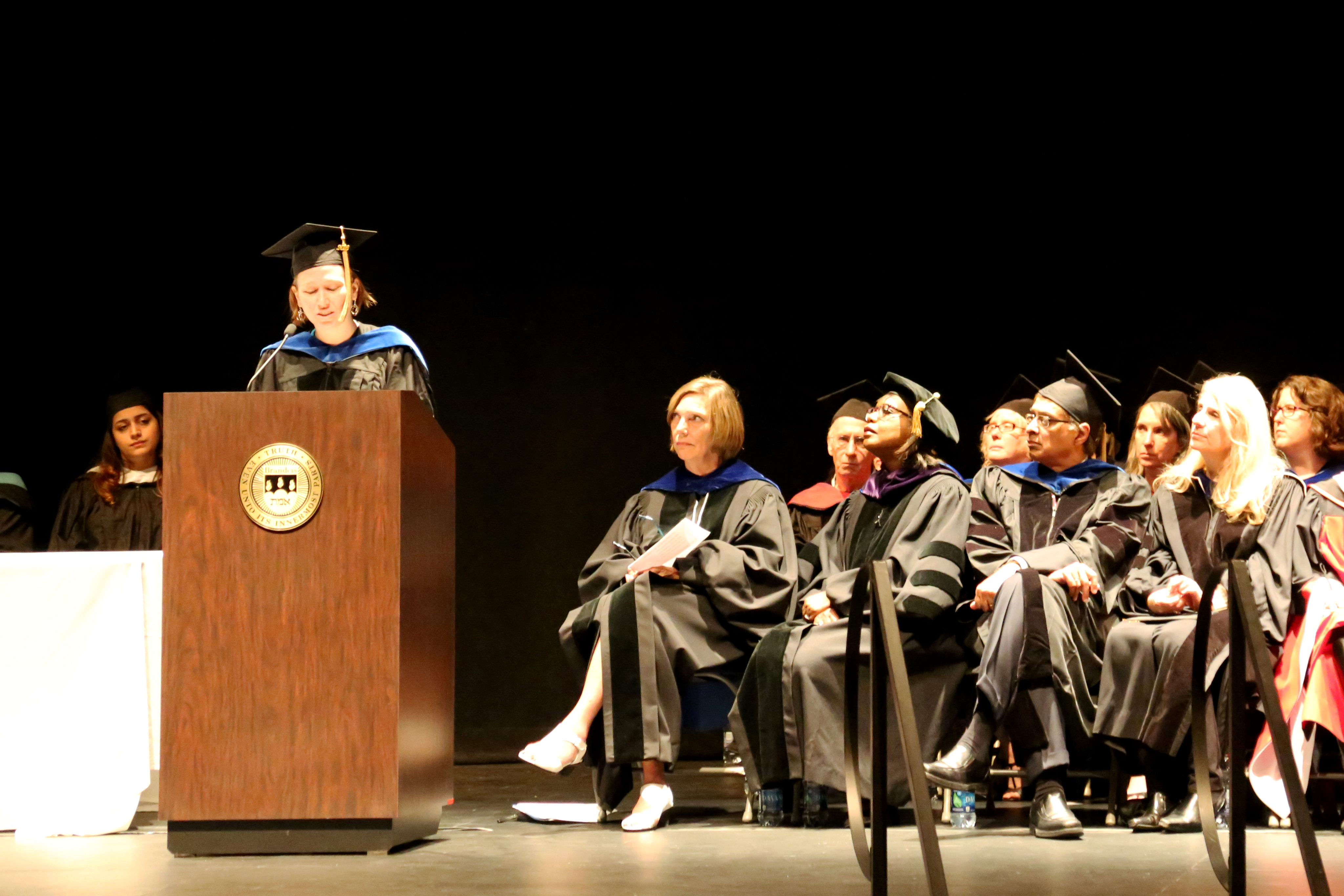
When I was invited to speak at this commencement ceremony on behalf of the PhD program, I admit I was surprised, and a bit skeptical of my ability to represent the experiences of Heller PhD students. Because the truth is that I always felt slightly out of step with my Heller classmates. When I arrived at Heller in the fall of 2011, it seemed that everyone in my cohort was passionate about tempering some grand social injustice. As I listened to them talk about HIV prevention, child safety, workforce diversity, mental health parity and a long and varied list of other important issues, I noticed that everyone seemed intent on conducting applied social research that would influence some area of public policy—and, broadly speaking, everyone seemed to share a left-leaning policy agenda. Except for me.
Like my classmates, I came to Heller looking for rigorous training in research methods and a solid grounding in social theory. But unlike my classmates, I wasn’t focused on government as the engine of social change—I was focused on civil society, and on the potential of communal and religious organizations to address pressing social issues. In particular, I was focused on the American Jewish community, and on the policies of the private foundations and other nonprofit organizations that implement its core values. As for my political agenda, well, I’m pretty sure no one else in my cohort spent our third semester campaigning for Scott Brown on the weekends!
But when I sat down to write this address, I realized that my lingering sense of disconnect from my Heller colleagues and classmates has given me a unique perspective on the power of research to unite individuals with diverse and sometimes competing interests, and to build bridges across ideological divides.
As my classmates and I learned to assess, build and argue from an evidence base, I think we also learned to open our minds and recognize our own assumptions and biases. Wrestling with data is a humbling experience, showing us the gaps in our knowledge and the holes in our arguments. And it’s a bonding experience, uniting us in a shared quest for rigor and truth.
My fellow graduates: we live in an age of increasing ideological polarization and animosity. Moderates are disappearing from Congress. The most politically active Americans are getting their news from distinct, highly partisan media outlets. Antipathy between Republicans and Democrats is surging, particularly among political activists. And we’ve all heard the caustic tone taken by the candidates in the presidential primary, with Hillary Clinton saying during the first Democratic debate that she was proud to count “the Republicans” as her enemies, and Donald Trump calling for a Black Lives Matter protestor at one of his campaign rallies to be “roughed up.”
As scholars, we have the ability to help elevate the tone of public discourse in this country—to move beyond base partisan rancor and petty name-calling toward a more reasoned, evidence-based discussion about our national future. We have the ability to forge a more respectful and constructive debate. If we can introduce the results of our research into conversations that would otherwise be circumscribed by impression and emotion, then maybe we can also lead people toward shared understanding.
Brandeis’s motto, “Truth, even unto its innermost parts,” comes from the Hebrew Bible, the Book of Psalms (51:8). The university links its motto to the principles of scientific inquiry, and we often assume that the Psalmist is seeking some empirical truth about the universe. But if you read the whole Psalm, it’s clear that the “truth” the Psalmist is seeking is actually self-knowledge, and the ability—so critical to the scientific endeavor—to recognize his own limitations. So here are my wishes for us, my fellow graduates, on this auspicious day:
That we approach our future research endeavors not only with empirical and theoretical rigor, but also with humility and an acute awareness of our own biases;
That we avoid the snarky, unfiltered discourse of the Twitter-verse in favor of thoughtful, data-driven dialogue;
And that we always respect the intelligence and moral commitments of those whose interpretations of the data differ from our own.
If this is how we operate as scholars, then I think we will have already addressed one of the pressing social issues of our day, whatever else may happen along the journey.
